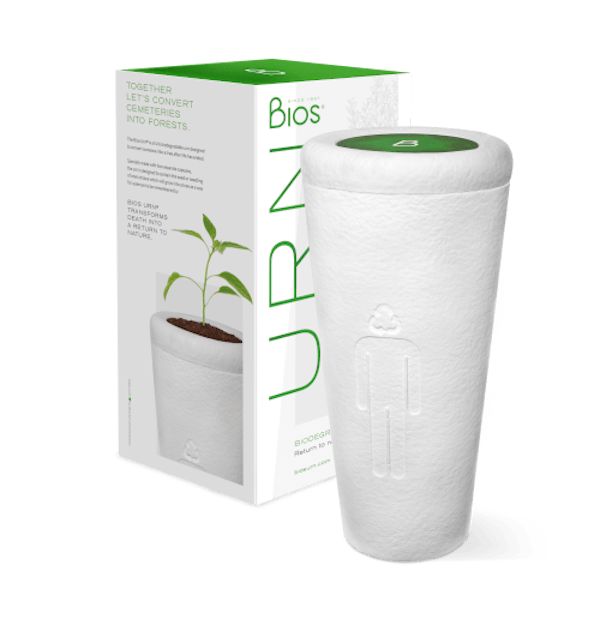A friend's mum died last week. She told me "I had no idea there would be so much paperwork."
When you're grieving, the last thing you want to do is deal with documentation, legalese, and people trying to shill you the ephemera that comes with funerals, like financially inflated coffins.
You might not want a funeral, much less a conventional burial. And then, there's the question of how you deal with digital assets, like social media, photo albums, neobanks, and crypto.
Fortunately, startups are here to help.
Guardian Angel (UK)
Guardian Angel was founded in 2017 to help people proactively plan for their death. The company has created a credit score for death, which tells customers how prepared they are for death and points out which insurance, legal and financial actions they can take to be better prepared.
It also has developed a support hub with private online communities for bereaved families and friends to get help, share memories and streamline communication in one place.
Guardian Angel raised $2.1 million in a seed round and was acquired by Octopus Group in December 2022.
Lemons Life (UK)
Have you written a will? I spoke to founder Alex Delaney who calls herself "the bossy death fairy". She founded Lemons.life after the death of her husband suddenly aged 34. Neither had written a will.
Dealing with complicated admin while coping with grief was a sour experience. So she partnered with experienced solicitors to help you write your will online or get an LPA.
And it only costs £90 and takes about 20 minutes. It's cheaper and quicker than writing a will in person. (Stay tuned for an interview with Alex Delaney tomorrow).
Safe Haven/Inheriti (Brussels)
Digital inheritance will be the hand-me-downs of the future. The blockchain crypto-space is young, both in age and investor demographic. With it comes a lack of concern regarding the loss of digital assets due to unforeseeable circumstances.
There's also the issue of an investor's lack of confidence with sharing a private key with heirs. Storing this information insecurely could lead to physical loss, theft, or even manipulation of assets.
Remember when crypto shyster Gerald Cotten died, taking the company password with him?
Inheriti aims to protect a deceased or incapacitated person's digital legacy and ensure their family/stakeholders can obtain access when necessary. A combination of blockchain, smart contracts, and patented hardware offers a significant safeguard to your loved ones' inheritance.
Settld (UK)
Launched in 2021, startup Settld enables members of the public to notify a death to over 950 market-leading service providers across the UK, from banks and insurers to energy firms, mobile providers, subscription services, social media platforms and others.
Settld's free online service also helps users close, transfer or amend accounts and obtain date-of-death balances for probate.
Settld has raised £900k in funding.
Closure (Netherlands)
Closure, headquartered in the Netherlands, offers a service to cancel subscriptions, contracts and accounts of a deceased person.
It verifies a death certificate using its AI-driven software. Then a standardised 'first-time-right' notification is generated and transferred to the organisations.
The company has raised €1.8 million in funding over two rounds, most recently raising €1.5 million in July 2022 from a Series A round.
Tyde (UK)
I'm sure I'm not the only person who doesn't want to visit a funeral parlour and deal with undertakers, and coffins. Tyde allows you to arrange a tailored funeral online from home.
Once you've made your arrangements, an online portal is available to complete the required paperwork. You can also create an online obituary, publish funeral details, and collect donations.
Tyde's transparency is significant. Unlike other funeral directors, it doesn't mark up product prices, meaning you get the fairest price on coffins, flowers and even the crematorium. Instead, it charges a fixed fee for its services, and that's it.
Life! (France)
Life! is a company with a find-a-funeral director online platform, comparing services and prices within local regions in France.
Company founder Lilian Delaveau also envisions Requiem Code, a QR code app that personalises graves by displaying memories of the deceased person in AR when put on a tombstone. QR codes have been used in remembrance Asia.
Plotbox (Ireland)
Plotbox brings burial-plot-as-a-service to B2B with its cloud-based death care management solution that supports cemeteries, funeral homes, and crematories.
It combines software to create infrastructure, such as a funeral director management portal and mapping using GPS and drones.
The company has raised $6.5 million in funding over seven rounds.
Bios Urn (Spain)

Bios Urn offers a greener alternative to a cremation urn that sits on the mantelpiece (who has a mantlepiece anyway?). Founded in 2013, it developed the world's first plantable sustainable urn. Each urn is biodegradable and plantable, with a capsule compartment to add a seed or seedling of your choice.
For those without a garden, never fear. There's also Bios Incube® Lite, a container garden product that allows you to grow a tree using the remains of a loved one right in your own home.
Urns can be ordered for both humans and pets.
Capsula Mundi (Italy)
Capsula Mundi offers human composting. The company has created an egg-shaped pod which is completely biodegradable, which the loved one is placed inside after they have died. The pod is buried with a seed that will grow into a tree.

Unlike a conventional cemetery, the trees are unmarked but plotted on a GPS system.
However, the company has hit several regulatory hiccups in Europe, where it's currently illegal to bury a body in an egg-shaped pod.
There's also the matter of ensuring that soil, water, and the local environment are not affected by any chemicals that leak from the body. Therefore, Capsula Mundi can only offer biodegradable urns in Europe at this point.
It may have more luck in the US, where a lack of explicit laws make home burials legal by default in many cities, provided you factor in zoning, the impact on home resales, and the contamination aspect. California, Washington, Colorado, Vermont, and Oregon have legalised human composting.
Lead image: Capsula Mundi.


